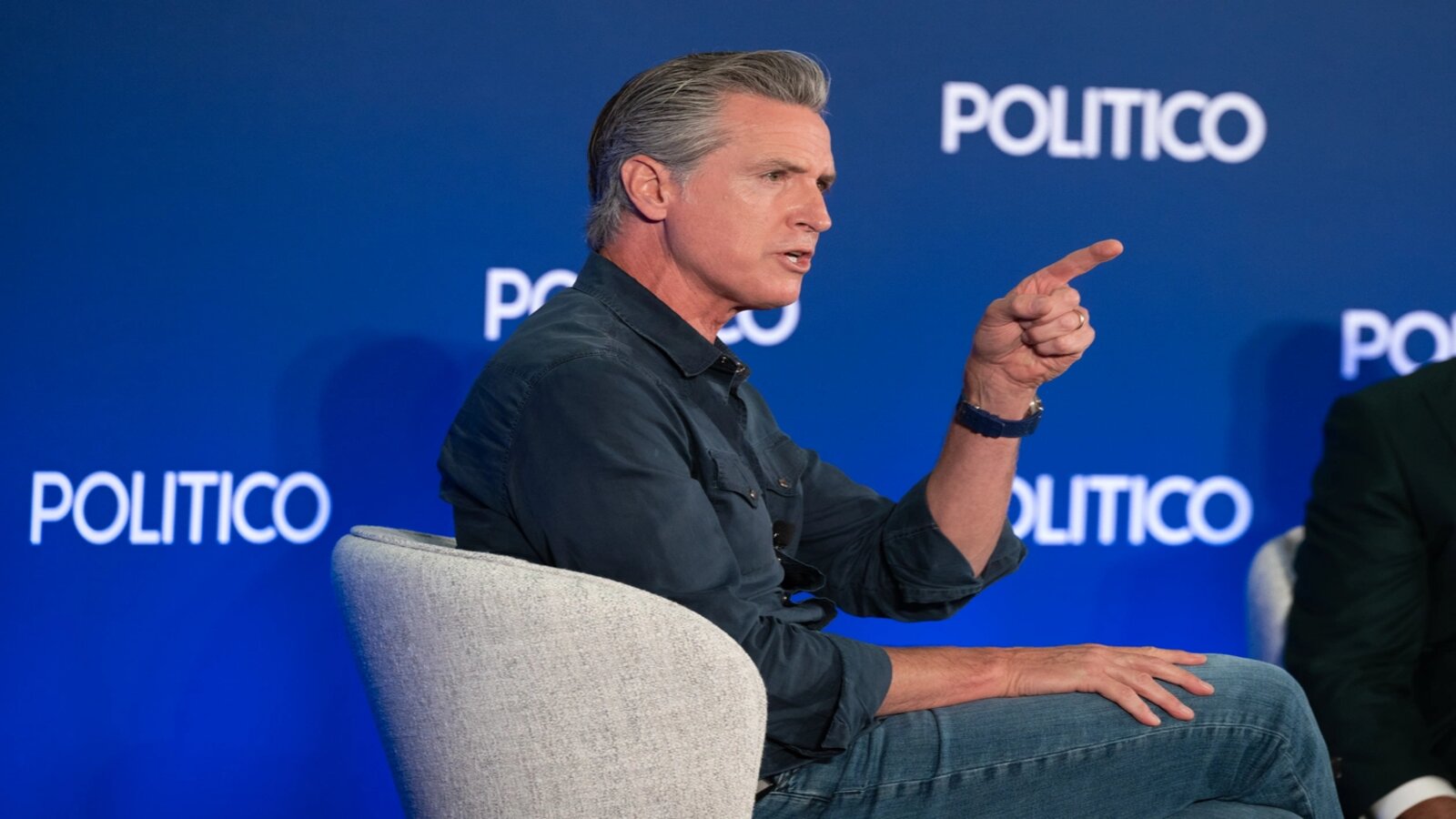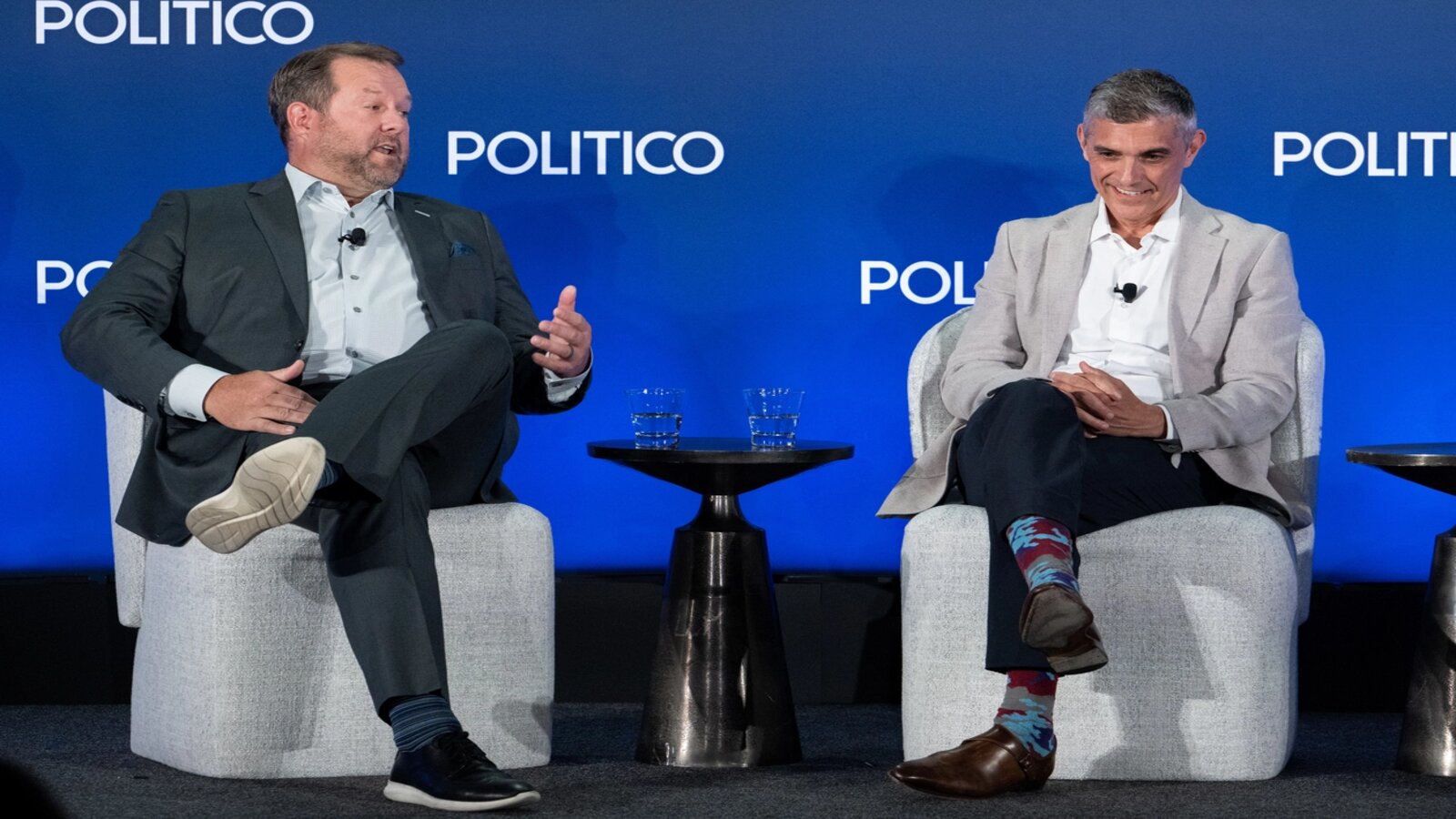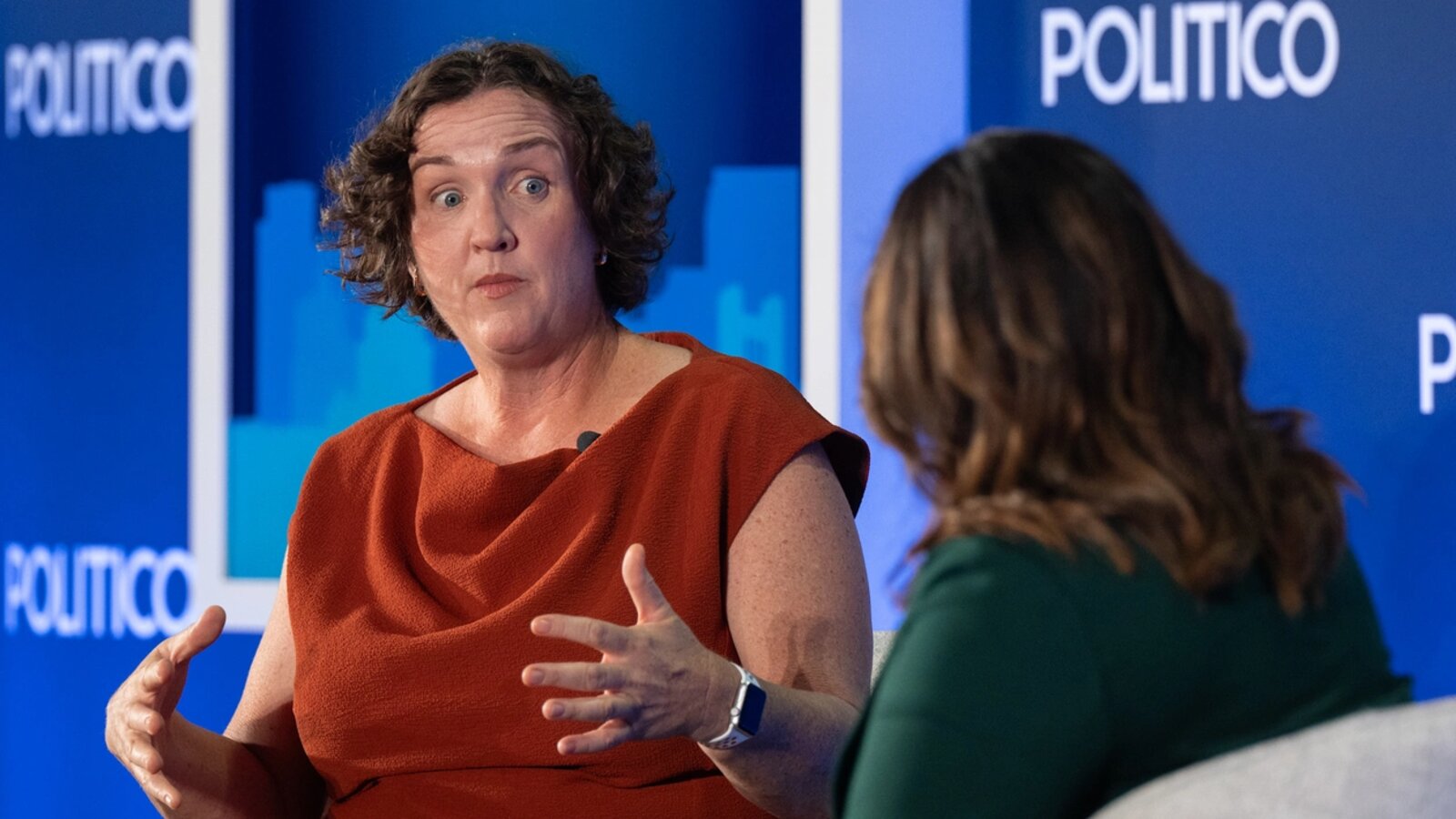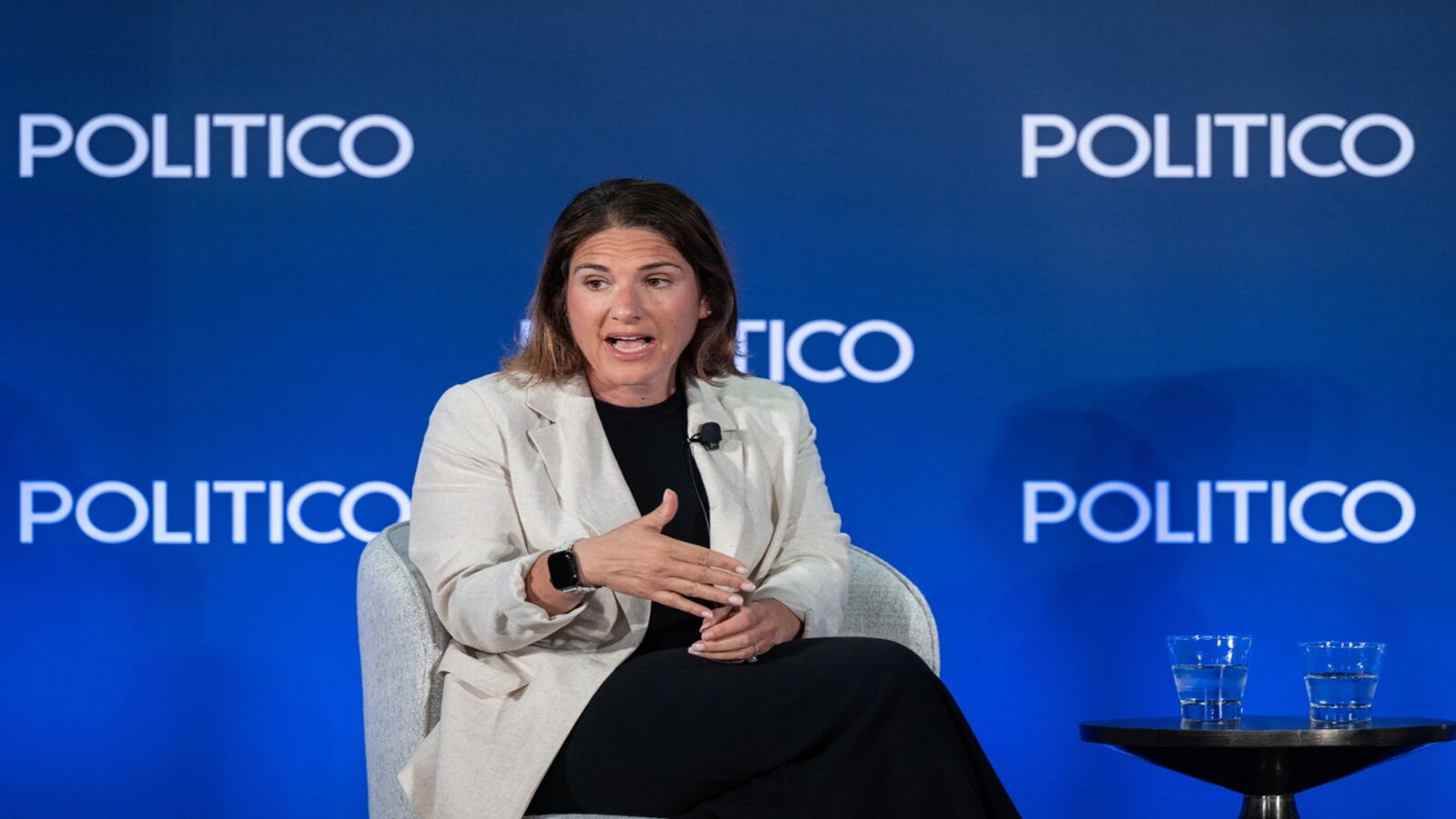
Alex Padilla played it cool. Xavier Becerra and Katie Porter played nice. Steve Hilton played his Trump card. And Gavin Newsom just went off on Donald Trump.
Many of California’s leading political figures joined POLITICO’s “The California Agenda: Sacramento Summit” on Wednesday to share their thoughts on this year’s redistricting fight, the 2026 election and how Sacramento is navigating pressing issues like climate change, energy, and artificial intelligence.
Here are key moments and takeaways from the summit:
NEWSOM ON ICE
Immigration has galvanized Democratic opposition to the president — particularly raids the White House launched in Los Angeles, which Newsom called a function of Trump using immigration agents as a “private police force.”
One episode in particular figures to play a prominent role in Newsom’s gerrymandering campaign: Immigration and Customs Enforcement agents arriving at the campaign’s launch in Los Angeles.
Newsom and allies have cited it repeatedly as an egregious act of intimidation and a warning; don’t be surprised to see it in a campaign ad.
“This is a preview of things to come,” Newsom said, warning of a slide into authoritarianism.
“I don’t think Donald Trump wants another election,” Newsom said. “Who spends $200 million on a ballroom at their home and then leaves the house?”
SPEAKING OF TRUMP
California’s redistricting brawl started with Trump. And the president who demanded Texas Republicans draw him five more House seats — setting off California’s counteroffensive — will figure centrally in a campaign to pass a gerrymandered California House map.
The focus on Trump “gives people an opportunity to be for something that could effectively stop the thing they hate the most,” said Jim DeBoo, Newsom’s former chief of staff who’s guiding the campaign.

Even Rob Stutzman, a longtime Republican consultant who worked for gerrymandering foe and former Gov. Arnold Schwarzenegger, conceded that the president will loom over the contest.
“If Trump gets real involved in this, I think it’s great for Jim’s campaign,” Stutzman said, adding that the broader fallout has shown California Republicans who could be forced out, like Rep. Kevin Kiley, that “Donald Trump doesn’t give a rat’s ass about their careers.”
But Trump isn’t everything. Stutzman said voters could be persuaded by that the initiative is an overreach by self-serving elected officials, offering “the opportunity to say, ‘no,’ to all of them, — the ‘f the politicians’ message.”
PADILLA KEEPS THE DOOR OPEN …
California’s senior U.S. senator knew he’d get the question. Rumors that Padilla is taking a look at the 2026 governor’s race — reported this week by POLITICO — have dominated recent political chatter.
Politics being a team sport, Padilla predictably pivoted to boosting the gerrymandering ballot measure that is agenda item 1A for California Democrats. But he didn’t rule out the potential governor bid everyone is discussing.
“Just a few calls and text messages in the last 48 hours,” Padilla said.
… AND OTHER DEMS ARE WATCHING
If Padilla does run, that could complicate the path for another Los Angeles Latino, Rep. Xavier Becerra. But if the former Biden Cabinet official and state attorney general is concerned, he didn’t show it.
“We’ve been partners for a long long time and friends for ages,” Becerra said, “and I look forward to serving with me as governor and he as senator.”
Porter, a front-runner in the race, also deflected a question about how Padilla might transform the still-fluid gubernatorial field, although she did hint at her preferred outcome by lauding “the work Sen. Padilla is doing in Washington — particularly on immigration, which is a federal issue.”
But whether it’s Padilla or someone else — like, say, a certain Los Angeles billionaire — Porter predicted more contenders are coming.
“I think there will be more folks, because this is California,” the former representative said. “I wouldn’t say that we’re fully done yet.”

HILTON LOOKS TO WASHINGTON
Any Republican running for governor of California faces steep odds. And that’s not just because Democrats dominate the voter rolls. It’s also because the party’s leader, Trump, is political arsenic for much of the electorate.
But conservative pundit Steve Hilton leaned into his Trumpian bona fides, touting his connections to the president and to various Cabinet officials he name-dropped. It was a reminder that a Trump nod could help a Republican consolidate the GOP vote and push into the top two, as we saw in 2018 with John Cox.
“I think I would be a good champion for California with the current administration,” Hilton said.
REFINING THE GOAL
The fate of California’s refineries is shaping the state’s energy agenda. With two facilities already poised to close, Western States Petroleum Association CEO Catherine Reheis-Boyd warned the state must roll back refinery regulations or risk sending market signals that will force additional refineries to make “very tough choices.”
But Kip Lipper, the Senate’s top climate adviser, argued that keeping refineries open isn’t on its own the solution to California’s affordability crisis.
“Look at the cost of the wildfires in Southern California. Look at the cost of floods in the state that most objective meteorologists attribute to climate change,” Lipper said.
The Trump administration is successfully battering California’s climate policies, but state leaders will continue to “fight like hell,” said Lauren Sanchez, Newsom’s senior climate advisor. She added that she would give their administration an “A minus” on its response to a new set of federal tactics.
“We thought it would look more like Trump 1.0 and they have a completely different playbook,” Sanchez said. “They had four years to study what they did wrong in the first administration and employ new tactics.”
DATA CENTER DUEL
Assemblymember Rebecca Bauer-Kahan and San Jose Mayor Matt Mahan finessed their way around a few flash points onstage Wednesday while finding some common ground on how the state should rein in artificial intelligence, but also how it should be used to the state’s benefit.
Along for the ride was President of the Carnegie Endowment for International Peace Mariano-Florentino “Tino” Cuéllar, who coauthored an AI expert report commissioned by Newsom that has led the policy conversation in Sacramento this year.

The report is now state Sen. Scott Wiener’s SB 53, a measure which has the tech industry’s hackles up and could force the governor to make another tough decision on regulating the technology.
Bauer-Kahan and Mahan were not quite a study in opposites when it comes to the data centers that power the AI industry. But their differences expose some fault lines on the left when it comes to the economics of the sector.
A bill from Bauer-Kahan would require data centers to disclose their energy use, and attempt to shield everyday ratepayers from spikes in their own bills driven by the “AI factories” massive data use. Mahan said he wasn’t opposed to a little transparency, but that each data center under 100 megawatts represents around $6 million in annual revenue for his city – dollars that can be funneled into schools and local government.
Asked if there was anything in Trump’s recently released AI Action plan he jibed with, Mahan said, “One thing I think the Trump administration has highlighted that I agree with is the emphasis on global competitiveness and the importance of energy supply.”
